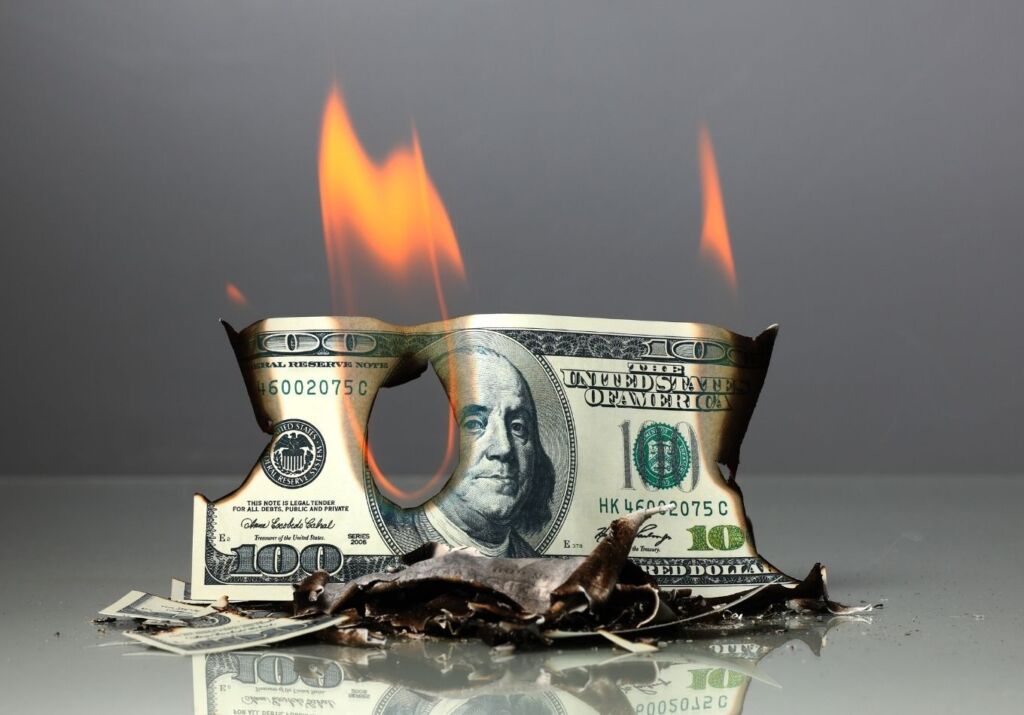Ineligible MN labor union received COVID funds
A Minnesota labor union received taxpayer funds through the federal Paycheck Protection Program for which it was legally ineligible, according to report by the Freedom Foundation.
The report tracked nearly $37 million in total federal COVID-19 relief that ineligible unions — including teachers’ unions — and related organizations collected across the country.

Created as part of the Coronavirus Aid, Relief and Economic Security (CARES) Act, the Paycheck Protection Program (PPP) provided $349 billion in fully guaranteed Small Business Administration (SBA) loans to eligible small businesses, individuals and non-profit organizations. These loans could be forgiven if used according to the CARES Act.
Eligibility for PPP loans was not universal, according to the Freedom Foundation’s report, and was initially primarily limited to nonprofit organizations with a 501(c)(3) tax-exempt status. Labor unions are generally registered as 501(c)(5) organizations.
On March 11, 2021, President Biden expanded PPP eligibility to additional nonprofits, which included 501(c)(5) labor unions. But the Freedom Foundation’s review found that hundreds of loans worth $36.7 million had been approved to these groups before the March 11 date.
In Minnesota, the Freedom Foundation’s report identifies the Minnesota Public Employees Association as an ineligible labor union who was approved for a PPP loan of $8,250 on May 1, 2020.
Who’s responsible?
Based on how the PPP was structured, the Freedom Foundation lists up to three parties who may share the blame for the ineligible loan approvals: the borrower, the private lender who processed the loan on behalf of the SBA, and the SBA itself.
The borrower
The unions and affiliated organizations completing these loan applications could have: (1) checked a box falsely indicating they were an eligible entity; or, (2) selected “other.” In the first instance, the applicant committed fraud; in the second, the lending institution and/or SBA did not detect, or detected but did not care about, the applicant’s ineligibility.
Even checking the “other” box may not have saved an ineligible applicant from committing fraud, as the forms also required applicants to certify their “…[eligibility] to receive a loan under the rules in effect at the time this application is submitted” and “…that the information provided in this application and the information provided in all supporting documents and forms is true and accurate in all material respects.”
Applicants had to acknowledge that they understood that the penalties for submitting incorrect forms involved at least a couple years of imprisonment and/or thousands of dollars in fines.
The private lender
Because PPP loan applications were not submitted to the SBA directly, private financial institutions — federally insured financial institutions and non-bank lenders — received and processed the applications. According to the Freedom Foundation, if a lender decided to approve a loan, it reported the loan to the SBA by completing and submitting the proper Form 2484.
Lenders submitting Forms 2484 to the SBA were required to certify that they “obtained and reviewed the required application (including documents demonstrating qualifying payroll amounts) of the Applicant” and to confirm that, “The Applicant has certified to the Lender that the Applicant is eligible under the Paycheck Protection Program Rules.”
Even if a PPP loan applicant submitted an application incorrectly indicating eligibility, in most cases a cursory review of the applicant’s tax documents should have confirmed the applicant’s ineligibility. Consequently, lenders bear at least some of the responsibility for approving PPP loans to ineligible applicants.
The SBA
“As the entity charged by Congress with implementing and overseeing the distribution of PPP loans, the SBA certainly bore responsibility for instituting internal controls necessary to ensure ineligible organizations did not receive loans,” wrote the Freedom Foundation.
A January 2021 report by the SBA’s inspector general that the Freedom Foundation cited found that the
“…SBA lacks assurance that loans went to only eligible recipients. Loans given to ineligible borrowers placed taxpayer funds at risk of financial loss and delayed the amount of available critical capital needed for eligible businesses to withstand the effects of the pandemic during the first round of PPP funding.”
Further investigation needed
The unions received millions in forgivable loans “despite the fact that state and local governments did not experience the kinds of economic disruption felt by private businesses,” the report says.
The Freedom Foundation concluded its findings by calling on the SBA and the Department of Justice to investigate further, recover funds improperly paid, and prosecute any fraudulent activity committed.
___________________
Correction: A previous version incorrectly identified the International Union of Operating Engineers (IUOE) Local 49 Training Center and the International Brotherhood of Boilermakers Local 647 Training Center as ineligible PPP loan recipients.